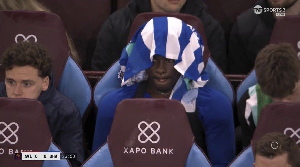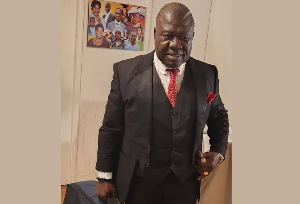The American and African forces sent to Cameroon to fight Boko Haram have, on several occasions, located clusters of the schoolgirls kidnapped by the militant group two years ago, United States officials said.
Rescue operations have not been carried out, the officials said, because of fears that any ensuing battle with Boko Haram fighters would put the captives at risk, or incite some form of retaliation against hostages still being held in other areas.
American officials said a combination of local intelligence, intercepted communications and drone footage had been used to locate groups of the 276 girls abducted from the Government Girls Secondary School in the Nigerian town of Chibok two years ago this month. Some of the girls have since been tracked to Nigeria’s sprawling Sambisa Forest.
Officials insist that efforts to free the girls have not been abandoned. They say that a major concern is the hundreds of other women and girls who are also held by Boko Haram, captives who are often sexually assaulted, forced into marriages with their tormentors, and sometimes killed.
“You’re not just looking for 200 girls,” said Gen. Carter F. Ham, the retired head of the United States military’s Africa Command. “There are many, many others who have been taken hostage, and more thousands killed, and two and a half million people displaced.”
Senior American military officials joined Samantha Power, the United States ambassador to the United Nations, in Cameroon this week to speak with the country’s military and civilian leaders about the fight against Boko Haram and information gleaned by American intelligence.
The talks took place not far from where American Special Operations forces and hundreds of surveillance drone operators are based. Despite the proximity of the troops, Boko Haram’s attacks continued.
On Monday night, three Cameroonian soldiers were killed and five were wounded after Boko Haram fighters ambushed a military convoy near Dabanga, a town in the country’s north, Cameroonian military officials said. The ambush followed intense fighting on the Nigerian side of the border, where Boko militants attacked an army base, wounding 22 soldiers.
United States military officials said that intelligence reports show that the girls have been divided into smaller groups. Gen. David M. Rodriguez, the head of the military’s Africa Command, told reporters at the Pentagon this month that the Chibok girls have been “moved to some very isolated places.” General Rodriguez added that locating them is “not an exact science.”
Because the girls have been dispersed, military forces from Chad, Nigeria and Cameroon might need to mount simultaneous rescues to make sure that Boko Haram fighters do not retaliate for the rescue of one group. Such a multipronged, coordinated operation would be difficult even for highly trained American troops with combat experience in Afghanistan and Iraq to pull off.
“So the challenge is, how do you find lots of people held hostage in different places?” General Ham said. “That’s really complex and it stretches the capability of local forces.”
About 100 miles south of Maroua, the city where Brig. Gen. Donald C. Bolduc, top United States Special Operations commander for Africa, met on Monday with Cameroonian military officials, about 200 American drone operators and Special Operations forces worked with local troops to gather intelligence on Boko Haram and the whereabouts of its many hostages.
General Bolduc has recommended that the Pentagon send dozens of additional Special Operations advisers to the front lines of Nigeria’s fight against Boko Haram. Such a move would push American troops hundreds of miles closer to the battle against an extremist group that has killed thousands of civilians in Nigeria’s northeast as well as in neighboring Niger, Chad and Cameroon. The additional Special Operations advisers would serve in noncombat advisory roles, military officials said.
Even if the African forces continue to push back the militants, as they have managed to do in recent months, the hostages issue is not going away.
There has been concern that Boko Haram, perhaps because it is on the retreat, is increasingly using its hostages as suicide bombers. Few observers appear to put much stock in the assertion by Nigeria’s president, Muhammadu Buhari, that the militant group is technically defeated.
Col. Badjeck Didier, a spokesman for Cameroon’s Defense Ministry, said Tuesday that he worried that some of the Chibok girls may have been turned into suicide bombers.
“When we see the kamikaze bombers, they have the same age — 14-15 years — as the Chibok girls,” Colonel Didier said. He said a recent video released by Boko Haram that purported to show proof of life of a number of the Chibok girls — something the Nigerian government had demanded as a condition of negotiations — was a sign that the group wants to negotiate.
Tom M. Sanderson, director of the transnational threats project at the Center for Strategic and International Studies, said that the length of the girls’ time in captivity may have contributed to the difficulty in rescuing them.
“These women did not chose to become suicide bombers, but after two years of incarceration and bearing children of these men, some of them had to buy in out of personal survival,” Mr. Sanderson said. “I do think that Boko Haram has considered using these girls to kill their rescuers. And that would cause people to have spasms over what that symbolism meant.”
No United States official has yet made a public assertion that the Chibok girls have been turned into suicide bombers. Ms. Power, at a news conference on Tuesday in the capital, Yaoundé, said that the Special Operations forces sent by President Obama were doing “surveillance, intelligence and reconnaissance” and would continue their efforts to locate the Chibok girls.
“I want to assure the parents of the Chibok girls and the parents of any children gone missing that, indeed, the United States is in this for the long haul,” Ms. Power said.
Actualités of Wednesday, 20 April 2016
Source: nytimes.com













